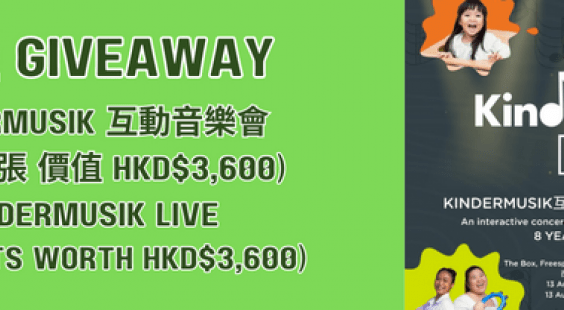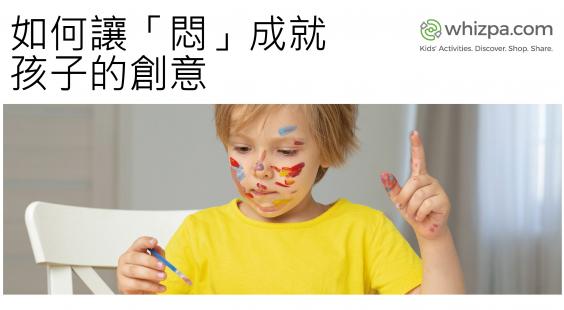
The Different Parenting Styles in Hong Kong: Which One is Right for You?
Parenting is a complex process, and the way parents raise their children can have a significant impact on their development and future success. In Hong Kong, there are several different parenting styles, each with its own unique approach to raising children. Understanding these parenting styles can help parents make informed decisions about how to best raise their own children.
Authoritarian Parenting Style:
High demandingness. Low responsiveness
The authoritarian parenting style is characterised by strict rules and high expectations. Parents who use this style often demand obedience from their children and enforce their rules through punishment. These parents tend to be less responsive to their children's needs and emotions, and they may not explain their reason behind their rules.
This parenting style is common in Hong Kong, as many parents believe that strict discipline is necessary to prepare their children for the highly competitive environment of Hong Kong's education system. However, research suggests that authoritarian parenting can lead to negative outcomes, such as low self-esteem, anxiety, and aggression in children.
Permissive Parenting Style:
Low demandingness. High responsiveness
Permissive parenting is the opposite of authoritarian parenting. Parents who use this style tend to have few rules and little structure, allowing their children to make their own decisions and avoid punishment. These parents are often highly responsive to their children's emotional needs, but they may struggle to set boundaries or enforce consequences.
In Hong Kong, permissive parenting is less common than authoritarian parenting. However, some parents may adopt this style in response to the stress and pressure of living in a highly competitive environment. While permissive parenting can lead to positive outcomes, such as high self-esteem and independence, it can also result in negative outcomes, such as poor academic performance and a lack of discipline.
Authoritative Parenting Style:
High demandingness. High responsiveness.
Authoritative parenting is a balance between authoritarian and permissive parenting. Parents who use this style set clear rules and expectations but also take their children's emotional needs and opinions into account. They use positive reinforcement to encourage good behaviour and enforce consequences for misbehaviour.
This parenting style is becoming more popular in Hong Kong as parents recognize the importance of balancing structure and support for their children's development. Research suggests that authoritative parenting can lead to positive outcomes, such as high self-esteem, academic success, and healthy relationships with others.
Helicopter Parenting Style
Helicopter parenting is a relatively new parenting style that has emerged in recent years. Parents who use this style tend to be highly involved in their children's lives, often hovering over them and micromanaging their decisions. They may be overly protective and may not allow their children to take risks or make mistakes.
This parenting style is becoming more common in Hong Kong, as many parents believe that their children need to be constantly supervised to succeed in the competitive environment. However, research suggests that helicopter parenting can lead to negative outcomes, such as low self-esteem, anxiety, and a lack of independence.
Tiger Parenting Style
Tiger parenting is a parenting style that is often associated with Chinese culture. Parents who use this style are highly demanding and have high expectations for their children's academic performance. They may use harsh punishment and criticism to motivate their children and often prioritise academic success over their children's emotional needs.
This parenting style is also common in Hong Kong, where parents may feel pressure to ensure their children's success in the highly competitive education system. However, research suggests that tiger parenting can lead to negative outcomes, such as low self-esteem, anxiety, and a lack of social skills.
Uninvolved Parenting:
Low demandingness. Low responsiveness.
Uninvolved parenting is a parenting style where parents are emotionally detached and provide minimal guidance and support to their children. These parents may neglect their children's basic needs such as food, shelter, and clothing, and they may not provide a safe and stable home environment.
Uninvolved parenting is considered to be one of the most harmful parenting styles, as it can lead to negative outcomes for children, such as poor academic performance, low self-esteem, mental health problems, and behavioral issues.
In Hong Kong, uninvolved parenting is not as common as other parenting styles, as parents generally prioritize their children's education and success. However, some parents may become uninvolved due to factors such as work commitments, mental health issues, or substance abuse.
Children raised by uninvolved parents may struggle with emotional regulation and may have difficulty forming healthy relationships with others. They may also experience a sense of abandonment and may struggle with feelings of low self-worth.
It is important for parents to be aware of their parenting style and the impact it can have on their children's development. If a parent recognizes that they are practicing uninvolved parenting, it is important to seek help and support to improve their parenting skills and provide a safe and supportive environment for their children. This may include seeking counseling or therapy, improving communication with their children, and establishing clear expectations and boundaries. With the right support, it is possible for parents to change their parenting style and provide a positive and nurturing environment for their children's growth and development.
Which Parenting Style Is The Most Effective?
There is no one "most effective" parenting style that is universally applicable to all children and families. Each parenting style has its own strengths and weaknesses, and what may work for one family may not work for another.
Research suggests that the authoritative parenting style, which combines warmth, support, and structure, tends to be associated with positive outcomes for children. This style allows parents to set clear boundaries and expectations while also being responsive to their children's needs and emotions. It can promote academic success, positive mental health, and healthy relationships with others.
However, it is important to note that parenting is a complex and dynamic process, and other factors such as the child's temperament, cultural background, and the wider social and economic context can also play a significant role in a child's development. Therefore, parents should strive to find a parenting style that works best for their family's unique circumstances and adjust their parenting strategies as needed over time.
It is also important to remember that effective parenting is not just about the specific parenting style used but also about the quality of the parent-child relationship. Parents who are warm, responsive, and communicative with their children, regardless of their specific parenting style, are more likely to raise happy, healthy, and successful children.
Conclusion
In Hong Kong, there are several different parenting styles, each with its own unique approach to raising children. While some styles may be more effective than others, the most important factor is the quality of the parent-child relationship. Regardless of the parenting style, parents who are responsive to their children's emotional needs, set clear expectations, and provide a supportive environment are more likely to raise happy, healthy, and successful children.








